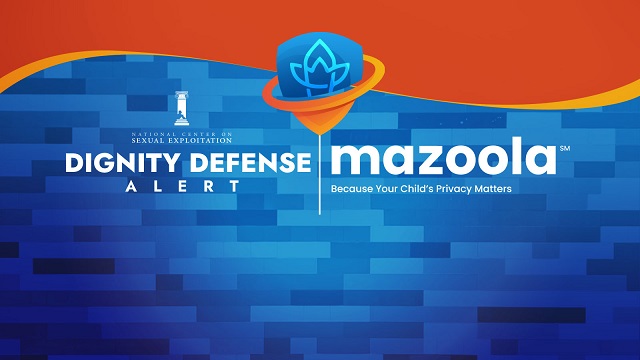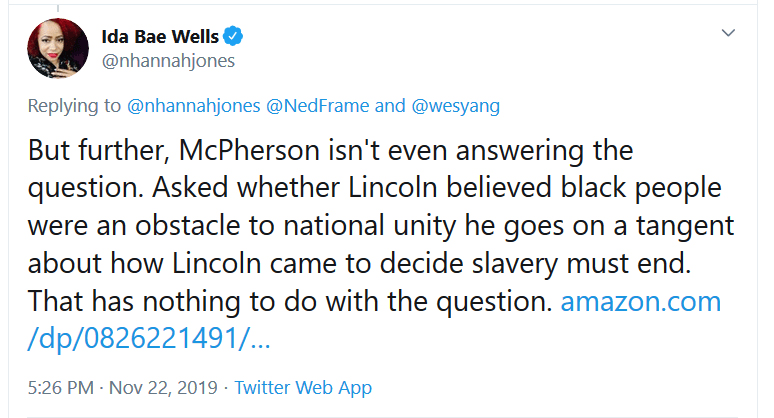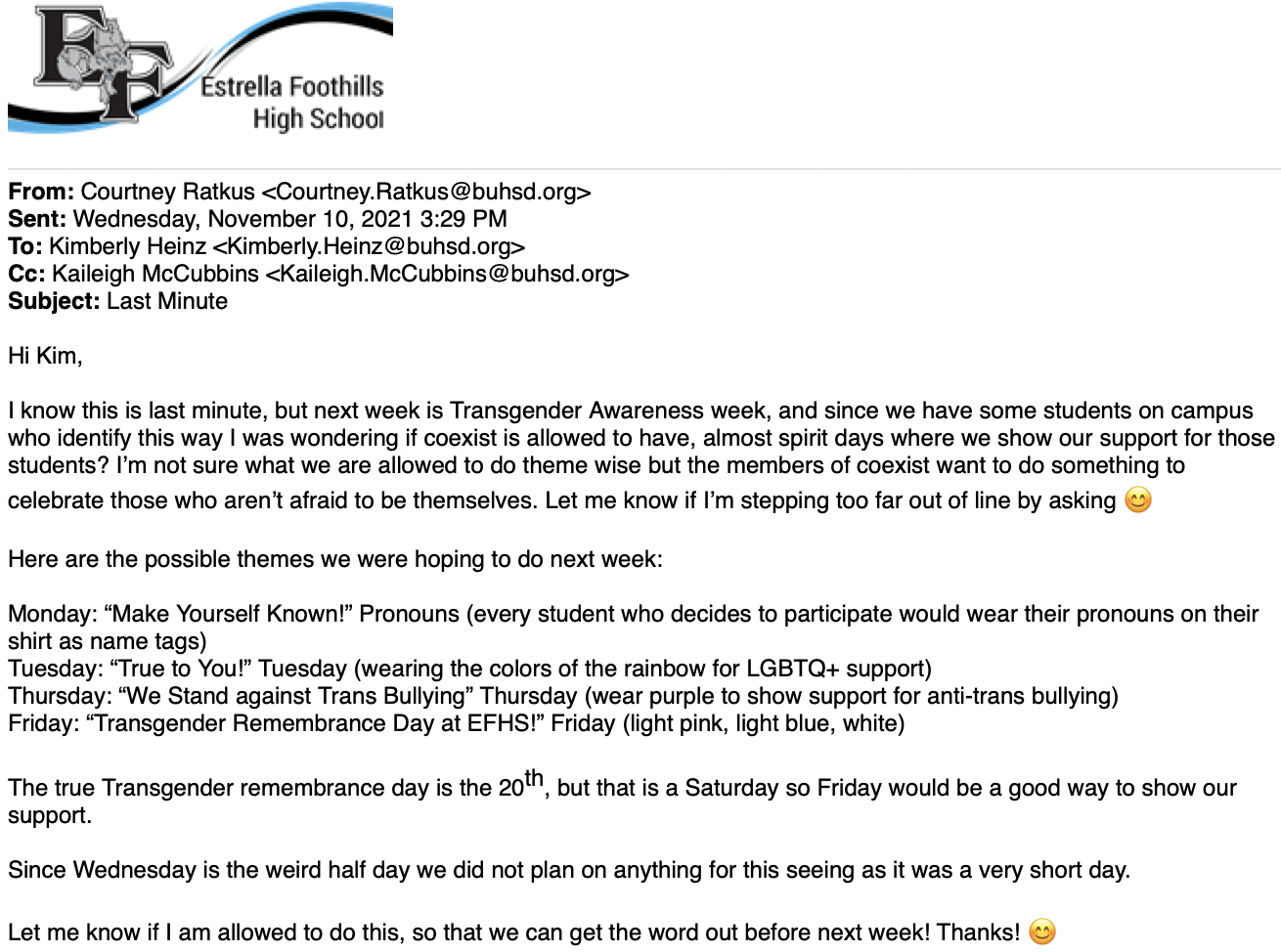The following is the transcript for the She Thinks podcast:
And welcome to She Thinks, a podcast where you’re allowed to think for yourself. I’m your host, Beverly Hallberg. And I’m so excited about today’s guest. Kara Dansky joins us to share why she is furious with her party, the Democrat party, for pushing gender identity or what she refers to as gender insanity. Her premise is that the redefining of the meaning of the word sex and gender victimizes women and children. In our conversation, we’ll discuss things that often aren’t allowed to be said in mainstream media. We’ll get into how gender identity has seeped into our laws and the resulting implications, how parental rights are being ignored, and what it has meant for her to speak out on such a controversial issue.
Now to Kara Dansky. Kara Dansky is a feminist, attorney, Democrat, and public speaker. She serves as the chair of the committee on law and legislation for the global human rights campaign, the WHRC, and is president of the WHRC’s U.S. chapter. She has a 21-year background in criminal law and criminal justice policy. Having worked at the mayor’s office of criminal justice in New York, the American Civil Liberties Union, the Stanford Criminal Justice Center at Stanford Law School and the Society of Council Representing Accused Persons in Seattle. She’s also the author of the new book, “The Abolition of Sex: How the Transgender Agenda Harms Women and Girls.” Kara, thank you so much for joining us on She Thinks.
Kara Dansky:
Thanks so much for having me. I appreciate it.
Beverly Hallberg:
There’s so much I want to get into on this topic, but I’d first like to start with why you decided to spend your days fighting for women in an area that is so controversial? Many people don’t dare to touch it. What made you brave enough to not just deal with this issue but put yourself out there in the spotlight?
Kara Dansky:
Thanks for the question. It doesn’t really feel like bravery to me to just stand up and say that women are female and men are male. But the answer to the question is that in 2014, I was talking with a friend and I’ll say, I’ve always considered myself to be a feminist. And as you mentioned in my bio, my career trajectory took a little bit of a different turn. I went into criminal justice, but I still considered myself a feminist. And in 2014, a very good friend of mine brought my attention to the danger of the so-called transgender agenda or gender identity, as we like to say, and I started paying attention and I looked into it and in 2015, I joined the organization Women’s Liberation Front. And in 2016, I joined the board of that organization. That year, Women’s Liberation Front or WLF sued the Obama Administration over a policy memo that the administration had put out. And I’ve been doing the work ever since.
Beverly Hallberg:
Now you talk a lot about how the redefining of the words sex and gender makes victims of women and girls. First of all, explain to us why the words matter so much and what the implications have been?
Kara Dansky:
So the words are absolutely critical. And so I will never use the word transgender without putting it in quotes. And I make the case in my book or at least I try to make the case. I don’t know how well I do it but I make the case that the word transgender was simply invented. And the reason it was invented is that it comes from so-called queer theory, which is an academic theory that essentially obscures the meanings of words that point to material reality. But if the queer theorists had tried to sell Americans on the idea that sex isn’t real, it wouldn’t have worked. Americans know how babies are made. We all know the basic facts of biology. And so they had to make up a word. And the word that they made up is transgender.
Feminist Janice Raymond wrote a book in 1979 called “The Transsexual Empire,” which predicted all of this. And she re-produced it in 1994 with an introduction that talks about the invention of the word transgender and how it’s going to harm women and girls in particular, though we need to be clear, it harms everybody. The abolition of sex harms everybody. We can talk a little bit about that. But I just refuse to use the language of the opposition. And I think it’s really important that feminists and conservatives who are in this battle for material reality and of the right to privacy and safety of women and girls to not use the language of the opposition ever, I think that’s absolutely critical.
Beverly Hallberg:
And so let’s talk about what these words, where they have seeped into. So we may say, it’s fine if people want to use these words on their own, but we are talking about word choice. You were mentioning the Obama administration that has seeped into executive orders, how government agencies work, government departments, that is in pieces of legislation, especially under the Biden administration. Is there a concerted effort to try to change the meaning of words within legislation and bills that come to Capitol Hill?
Kara Dansky:
Literally yes. So, a little bit of history on this, in 2004, the United Kingdom enacted a new law called the Gender Recognition Act. And what that did was provide a legal mechanism for people who underwent a certain amount of hormone change and surgical change to get what in the UK is called a gender recognition certificate. Fast forward to today and we have the United States Congress inserting new language to literally redefine the word sex. So for example, in the Violence Against Women Act, I think it was 2013, Congress redefined the word sex to include the words “gender identity,” which are essentially just made-up words that have no coherent definition. They did it again this year in the Infrastructure Bill and they are seeking to do it in the so-called Equality Act, which would literally redefine the word sex in civil rights law to include things like gender identity, even though the definition of gender identity in the Equality Act is completely vague and incomprehensible.
So that’s what’s happening in Congress. Meanwhile, the Biden Administration for the first six months or so of this year, literally ordered federal agencies to redefine sex to include gender identity throughout federal administrative law. Those orders are the subject of a lawsuit that was filed by 20 states and in which my organization, the Women’s Human Rights Campaign’s U.S. chapter, has filed a brief arguing that in fact, the complete redefinition of the word sex to include gender identity violates numerous provisions of the U.S. Constitution, federal law and several provisions of state law.
Beverly Hallberg:
And what has really surprised me when I think about the women’s movement, feminism, often people think about the decades-long work to try to get women thought of as equal in the workplace. There are a lot of things that we could think of. I even know today, myself as a small business owner, I’m thankful for the strides that women made before me, so that I could be where I am today. And then when we see where it’s gone, it’s now to the point where people are saying somebody who is a biological man, that if he identifies as a woman, then he can break the glass ceiling for women. It’s really just shocking whether it’s in sports or in careers, how they lift up biological men as women and say that this is shattering the glass ceiling. I find that offensive, do most women find that offensive?
Kara Dansky:
I think so, certainly, feminists do. Literally, yesterday was the anniversary of a massacre of 14 women at a school in Montreal and a Canadian news program decided to acknowledge the anniversary of that massacre. And we need to be clear a man murdered 15 young women because they were women, several decades ago. And yesterday was the anniversary and a Canadian broadcasting corporation decided to acknowledge that anniversary by having a man who identifies as a woman speak on their behalf. And it’s just grotesque.
Beverly Hallberg:
Well, you talk about the abolition of sex, it’s the name of your book. When we hear people want to use the terminology “gender identity,” it’s usually under the auspices that they’re trying to prevent discrimination, that we don’t want to discriminate, we want everybody to feel welcome and we want to be inclusive. Tell us how dangerous it is to abolish sex.
Kara Dansky:
Well, part of the problem here is that really across the political aisle, it seems to have been generally accepted that the phrase “transgender people” or “transgender athletes” or “transgender students,” that all of these words describe a coherent category of people for whom sex is irrelevant. That’s not true. And if we’re going to win the battle to fight for the right to privacy and safety of women and girls, we have to be very clear about that. So one implication that I think is not well understood is the phenomenon that we are literally seeing playing out today in prisons in the United States is that convicted rapists and murderers who are men are being housed in women’s prisons. A lot of people know that this is happening in California thanks to the Women’s Liberation Front for filing a lawsuit, challenging the law that allows that, mandates that. It’s also happening in Washington State but it’s also happening across the country.
And most Americans are kept in the dark about this because the media will not talk about it. So again, thank you for allowing me to talk about it here. Something else that I think most Americans just don’t understand because they don’t have a way to know this, is that the FBI tracks crime statistics by sex. And to the best of my knowledge the latest data available is from 2020, and it tracks crime according to male and female. And of course, as we all know, the overwhelming majority of violent and sex crime is committed by men against women. If we’re not allowed to acknowledge the reality of biological sex, we can’t talk honestly about the phenomenon of male violence against women. And that’s really, really dangerous.
Beverly Hallberg:
What do you say then — let’s take a specific example or a hypothetical example about a young biological boy, let’s say 13, 14 years old, feels that he is a woman, is bullied in the men’s locker room and wants to be able to use the females’ locker room because that is how he identifies. What do you do with these individual cases where somebody does feel bullied? Because these are the stories we often hear as the reason we need to change. Even the way locker rooms and schools deal with their policies.
Kara Dansky:
This is not a girls’ problem. If boys are bullying stereotypically effeminate men, young men, if boys are bullying gay boys, if boys are bullying other boys who like to wear stereotypically feminine clothing, then that’s a problem for the boys to solve. They need to stop doing that. They need to stop bullying young homosexual boys. They need to stop bullying boys who adopt stereotypically feminine characteristics and just accept these boys for who they are. But the solution is not to subject girls to having boys in intimate spaces. We know, for example, in Loudoun County, Virginia, the school district adopted a policy of allowing young boys into girls’ bathrooms and locker rooms.
And a young girl was sexually assaulted in a bathroom in a high school in Loudoun County, Virginia. And there seems to have been a concerted effort on the part of the school district to cover that up in order to justify its policy of allowing boys, in this particular instance, the boy wore a skirt, and he was allowed access to the girls’ bathroom on that basis. And he has been convicted of sexually assaulting a girl. The answer is not to allow these young men into girls’ spaces. The answer is to persuade boys to stop bullying them.
Beverly Hallberg:
And when it comes to young people and we think about education, it’s also what they’re being taught, the curriculum, trying to encourage teachers. There have been reports of teachers or counselors at schools trying to encourage young people to embrace a gender identity that is different from their biological sex. And also leaving parents out. The parental rights are not part of even having this discussion with their children. There’s also the cult, as we have seen. Abigail Shrier has written about this, about young girls wanting to or identifying as the opposite sex. So there seems to be almost a way for young girls to become popular if they talk about themselves as being a boy versus their biological sex. So do you see that there is an agenda at schools within the schooling system, education system, to try to encourage young people to identify as something else?
Kara Dansky:
Absolutely. And it’s deliberate. And we know this because there’s documentation of the deliberate nature of this industry, as I describe in the book, to indoctrinate children, to confuse them into thinking that there’s some kind of identity that is unrelated to their actual sex. We need to understand that there is a tremendous amount of money behind this movement to persuade young people to disassociate from their bodies. This is all documented for example, in Jennifer Bilek’s blog, the 11th Hour Blog, she tracks the industry. She has done an incredible job of investigative journalism in understanding the power and the money behind this movement.
I want to get to your question about Abigail Shrier’s book but first I just want to make very clear, as you alluded to earlier, there seems to be an assumption that the movement to abolish sex is a bottom-up, grassroots movement to secure civil rights for a defined category of people. That is not what’s going on here. This is a very top down, top heavy, heavily funded industry that is pushing this into our schools, into our boardrooms, into our living rooms. It is capturing almost all aspects of American society. It’s extreme-
Beverly Hallberg:
Yeah, it’s damaging young people in the process. I just wanted to ask you this question about the fallout of this, there is a woman, 23 years old, who’s been very brave in talking about her story of taking hormone treatments, testosterone in her teens. It was encouraged by people in her school. And she’s now talking about the harms of that. Are we hearing more stories from young women talking about what the harms have been, whether it has been through different pills, medicines they took, or even those who did go as far as to have surgery?
Kara Dansky:
Just curious, are we talking about Keira Bell?
Beverly Hallberg:
We are not. It’s someone else, I’m trying to remember her name offhand, but she started to become outspoken on this.
Kara Dansky:
Yeah, we are definitely hearing more and more. To its credit, I want to give 60 Minutes credit for having a segment that did cover some stories of young people who did go through hormonal and surgical procedures and came to regret it. We’re hearing more and more stories about this. I have personally spoken with a young woman who contacted me for help because she was having trouble at her place of employment. And she had thought she was a boy. She had a double mastectomy and she regretted it. And we need to talk about how heartbreaking this is, especially for girls, and all credit to Abigail Shrier for writing about the phenomenon. It’s very difficult in many ways to be a teenage girl, to start developing, to feel the physical discomfort that comes with that, to feel the discomfort of all of a sudden men starting to pay more attention to our bodies.
It can be a very difficult adjustment and it’s especially hard now because it was hard when I was growing up but today with the total onslaught of pornography, we’re seeing boys watching pornography at younger and younger ages. Of course, it’s hard to be a girl. Of course it’s easier in many ways to be a boy. And it’s understandable why some young women would want to find their way out of being hypersexualized in a society that hypersexualizes young women. But we have to also understand that all of these children, girls and boys both, are receiving hormones that are highly likely to result in permanent sterilization and potential lethality. These are very dangerous drugs that children are being permitted to take and young people, there’s a reason that we don’t allow young people to buy cigarettes or alcohol or vote or drive.
And even though in our society, reasonable people can disagree about what age it’s appropriate to allow children to buy cigarettes or drive, we can have those policy conversations, but if we’re going to limit the choices that young people can make, why on earth would we allow children to make the decision to permanently sterilize themselves? It’s horrible. And yes, the answer to your question is more and more young people are coming to regret their decision. They are also coming to understand, the vast majority of them understand, that what they were dealing with was sexuality and that they were same-sex attracted. And they were struggling with realizing that they were same-sex attracted. And so they made decisions to identify out of their actual sex.
Beverly Hallberg:
I think so much as we start to uncover more and more, as you were saying, the money, the power behind this, the agenda behind this, we find that so much about this is to cover up what they’re really trying to do. So the less that people know, the better it is for them to be able to move forward with their agenda. One area where I think it’s been hard for the transgender movement to gain traction, or at least there has been pushback, has been in the area of women’s sports. For example, there is a recent story that was widely circulated this past week, where a biological boy who identifies as female, name is Lia Thomas, 22-year-old transgender swimmer at the University of Pennsylvania, has been shattering women’s records, no surprise, because Lia is a biological man. Do you find in the area of women’s sports that this is where people can really look at what the agenda is and say, “Hey, this isn’t fair. This is absolutely not fair.” Do you find traction in this area for those who view this as we do?
Kara Dansky:
Yes, and shoutout to my friend Beth Stelzer at an organization that she founded called Save Women’s Sports. She’s done a tremendous amount of work in helping lawmakers, especially at the state level, but also at the federal level, succeed in getting legislation passed to protect women’s sports for women. I just want to pause for a second and ask what you mean in your question, you used the phrase, “transgender swimmer,” that’s the kind of language I’m trying to get away from.
Beverly Hallberg:
No, teach me, teach all of us. That’s helpful.
Kara Dansky:
Yeah, I really… So, as you said in the introduction, I’m a feminist, I’m a lifelong Democrat. And I have been spending a lot of time, or the past couple years, working across the political aisle because I think this is very important. I think that this should not be a partisan issue and the media has done a tremendous job of framing it as a partisan issue. And I’m very frustrated with most media outlets for doing that. But one of my frustrations is that the Republicans, that I am very happy to work with, often use phrases like transgender athletes or transgender swimmer or transgender students. That’s hurting us. It’s hurting the movement to push back against gender identity, using their language makes it much more difficult for us to gain ground in the movement to push back against the enshrinement of gender identity in the law. So I appreciate you letting me say that.
Beverly Hallberg:
Yeah. So out of curiosity then, is the correct thing that you would always encourage people to say in that specific example would be biological boy, just say a boy?
Kara Dansky:
Boy. Yeah.
Beverly Hallberg:
That makes sense. That makes sense. And so I’m glad you brought up the media. I wanted to ask you just a little bit about what it has been like for you as a Democrat, talking about these issues. I read your piece that you had published in the Federalist, it was entitled “Democrats Like Me are Furious with Our Party for Pushing Gender Insanity.” So first of all, can I ask you why as a Democrat, you chose to submit your piece to a conservative outlet, would more left-leaning outlets not publish your opinion?
Kara Dansky:
Absolutely not. So I mentioned the 2016 lawsuit that WLF filed against the Obama Administration, Tucker Carlson invited WLF to appear on his show. And I was happy to do it. That happened in early 2017. I’ve been on the show several times since. I was very grateful to the Federalist for publishing that piece. I was very grateful to the New York Post recently for publishing another piece. Feminists like me, who publish in conservative media, get a lot of pushback for it. We get in trouble with a lot of radical feminists who don’t think we ought to be doing that, but we have a story to tell.
And we’re grateful to the outlets such as yourself, who are willing to give us a platform to tell our story. What a lot of Republicans, I think, do not know because there’s no way for you to know this, is there are countless Democrats, rank and file Democrats all over the country who are furious at our party leadership for what they’re doing. You have a lot of allies in a lot of rank-and-file Democratic communities, but the reason you don’t know that is because the media won’t say it.
Beverly Hallberg:
Final question I have for you before, well, actually our final, final question will be about your book but the final question I have for you before we get to that, is something that we often hear. And this goes back to the language and the words that we use, we often hear people using different pronouns than the biological sex of a person. So if you, let’s take that athlete, the male athlete competing against women, do you ever use the pronoun “she” for a biological boy or even if one, let’s say, you could take Caitlyn Jenner, do you refer to Caitlyn Jenner as a he or a she?
Kara Dansky:
“He,” of course, because he is. But we should say there are efforts around the world to actually criminalize the use of accurate sex pronouns. And it’ll be very interesting to see whether our first amendment protects us in a way, for example, that Canadian law does not protect Canadians. There’s an effort right now to make the use of accurate sex pronouns a hate crime. And it’s also happening in the UK. It’s happening in Scotland. It’s happening in a lot of places. It may not happen here. Our first amendment may protect us from that but we’ll see. The district attorney of San Francisco has recently issued an order, all of the staff in his office are now required to use so-called preferred pronouns in court, which could potentially mean that a rape victim might be required to refer to a male alleged rapist as “she” on the witness stand, which I would argue would constitute perjury.
But we haven’t seen any of this play out quite yet in the legal system, but it’ll be very interesting to watch. There is one case in the Sixth Circuit coming out of Ohio, where a professor refused to use so-called preferred pronouns. He was disciplined by the public university, his employer, but he was vindicated in court at the appellate level. So that’s a good sign that our first amendment might protect us in a way that, for example, Canadians aren’t protected.
Beverly Hallberg:
Final question for you. You tell us about your book. I know we’ve talked about it here but who is the book for? What can people expect if they read it?
Kara Dansky:
So the book is called “The Abolition of Sex: How the Transgender Agenda Harms Women and Girls.” And I wrote it really for average rank and file, across-the-political-aisle Americans who either might be very confused about what is going on here. And it’s completely legitimate to be confused about what is going on, on topics of sex and gender because there’s a deliberate effort to confuse us or Americans who see what’s going on and want to speak out about it but may not quite feel comfortable doing so for the reasons you laid out in your introduction. These topics can be hard to talk about but it’s not impossible. And I really want Americans to have the tools to talk with one another. If you’re a Republican talk with other Republicans, embolden other Republicans to speak out about this using accurate language. If you’re a Democrat and you agree with me but you’re scared to speak out, I understand that, that’s very understandable but we’ve got to do it if we’re going to make headway here.
Beverly Hallberg:
Well, we thank you for your bravery. Kara Dansky, author of “The Abolition of Sex: How the Transgender Agenda Harms Women and Girls.” We so appreciate you joining us on She Thinks today.
Kara Dansky:
Thank you so much for having me. I really appreciate it.
*****
This interview was conducted on December 10, 2021, and the transcript was reproduced with permission from The Independent Women’s Forum.















